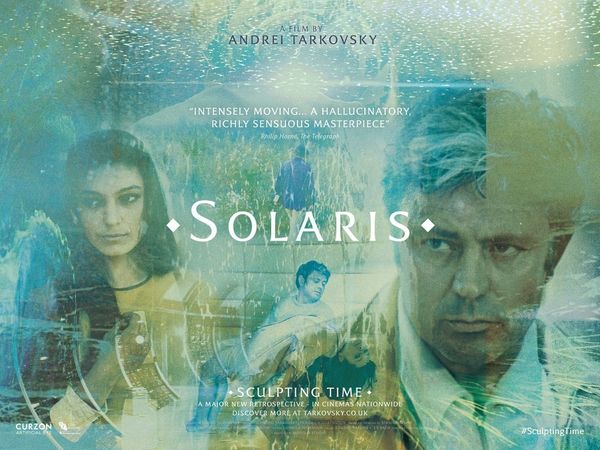Solaris (1972)

“Solaris,” directed by Andrei Tarkovsky and released in 1972, is a seminal work in the science fiction genre that transcends traditional storytelling to delve into the depths of human consciousness and emotion. Based on the novel of the same name by Stanisław Lem, the film presents a complex narrative that challenges viewers to reflect on the nature of reality, memory, and the human experience.
Set in a future where space exploration has become a reality, “Solaris” follows psychologist Kris Kelvin, played by Donatas Banionis, who is sent to a space station orbiting the mysterious planet Solaris. The mission’s purpose is to investigate the strange occurrences that have been reported by the crew, who have experienced inexplicable phenomena since the planet was discovered. The film opens with haunting visuals that capture the desolation of space and the isolation of the human condition, setting the stage for the psychological journey that unfolds.
Tarkovsky’s direction is characterized by its contemplative pacing and meticulous attention to detail. He often employs long takes and static shots that invite viewers to immerse themselves in the film’s atmosphere. The cinematography by Vadim Yusov is striking, utilizing natural light and reflective surfaces to create a dreamlike quality that blurs the line between reality and illusion. This visual style enhances the film’s exploration of memory and perception, making it a captivating viewing experience.
At the heart of “Solaris” is the enigmatic planet itself, which appears to have the ability to manifest physical representations of the crew’s deepest memories and desires. As Kelvin arrives at the space station, he discovers that his fellow crew members have encountered these manifestations, leading to intense emotional confrontations with their pasts. The planet’s ability to bring forth these apparitions forces the characters to confront unresolved feelings, guilt, and longing.
Kelvin’s encounter with the manifestation of his deceased wife, Harey (played by Natalya Bondarchuk), is central to the film’s emotional core. Harey’s return challenges Kelvin to confront the grief and regret he harbors over her death. This relationship serves as a poignant exploration of love and loss, illustrating how memories can haunt and shape individuals. Tarkovsky expertly weaves these themes into the narrative, prompting viewers to reflect on their own experiences of love and the impermanence of life.
The film’s philosophical underpinnings invite deep contemplation about the nature of human existence. Throughout the narrative, characters grapple with existential questions regarding identity, reality, and the limitations of human understanding. Solaris serves as a metaphor for the unknown aspects of human experience—those feelings and memories that remain elusive and incomprehensible. This exploration of the inner self is a hallmark of Tarkovsky’s filmmaking, as he often emphasizes the spiritual and psychological dimensions of his characters.

Moreover, “Solaris” raises questions about the nature of communication and the barriers that exist between individuals. The crew’s attempts to understand the planet’s phenomena reflect a broader struggle to connect with one another on a profound level. In a universe filled with unknowns, the film suggests that the most significant journeys are often those that take place within oneself. The inability to fully comprehend Solaris symbolizes the limitations of human knowledge and the complexity of emotional connections.

Tarkovsky’s use of sound further enhances the film’s atmosphere, combining natural sounds with a haunting score by composer Eduard Artemyev. The auditory experience adds to the immersive quality of the film, enveloping viewers in its melancholic and contemplative mood. The interplay of sound and visuals creates a sensory experience that lingers long after the credits roll.
As the narrative progresses, Kelvin’s struggle with his emotions and memories culminates in a moment of profound realization. He confronts the nature of his relationship with Harey and grapples with the implications of his own desires. This emotional climax serves as a powerful commentary on the human condition, emphasizing the importance of acceptance and understanding in the face of loss.

In conclusion, “Solaris” is a masterful exploration of human consciousness, memory, and emotion, transcending the boundaries of traditional science fiction. Andrei Tarkovsky’s direction, combined with the film’s striking visuals and profound philosophical themes, creates a cinematic experience that resonates deeply with viewers. The narrative invites reflection on the complexities of love, the nature of reality, and the enduring impact of our memories. “Solaris” remains a timeless work that challenges and inspires, solidifying its place as one of the most important films in the science fiction genre and a significant contribution to world cinema.
Suggested videos for you:











